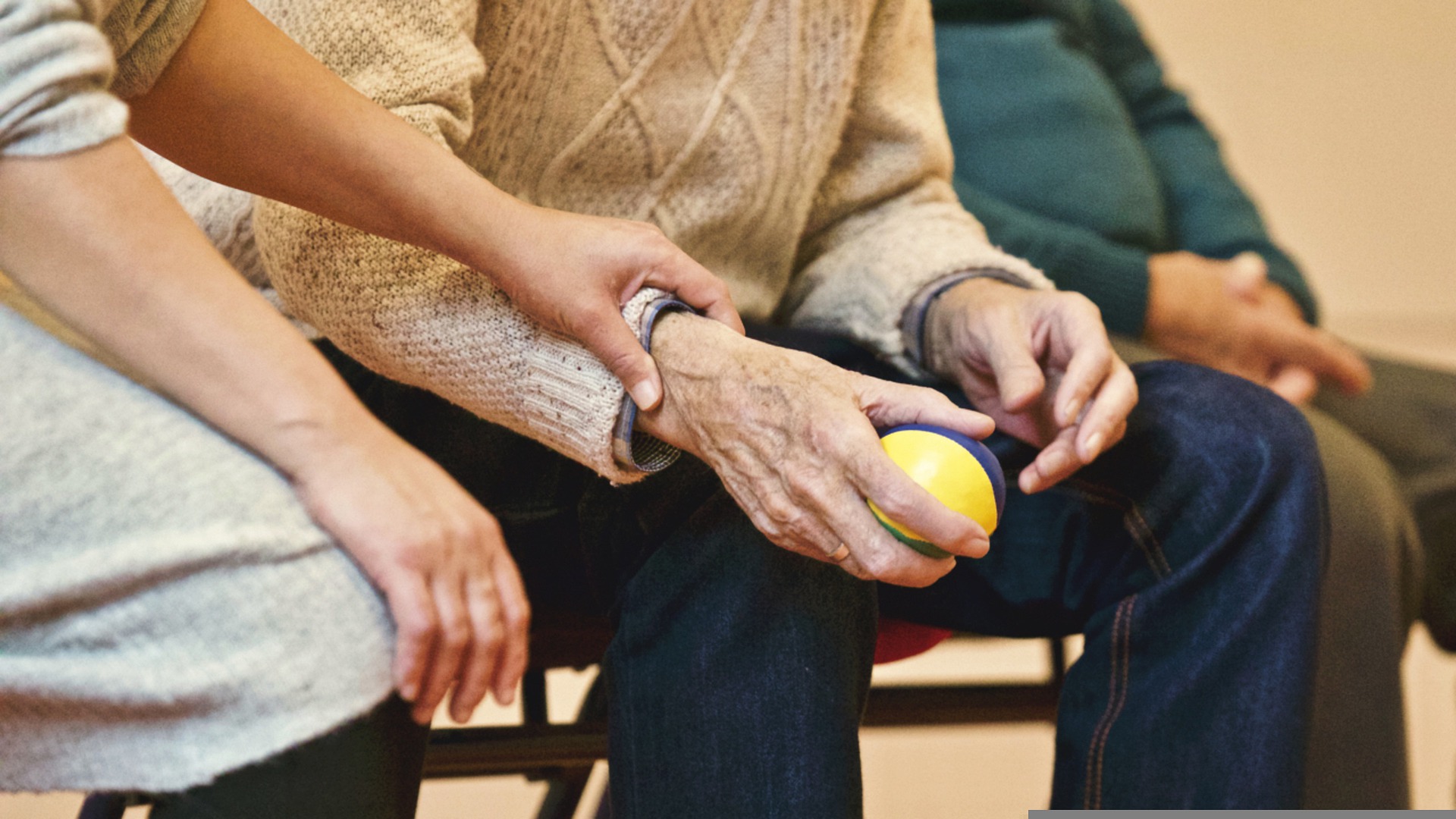Grandma’s long life
Ng Ai Ling – NV Care Ritual & Culture Management Department
I was about to go to bed at 11.30 pm on a Sunday night to prepare for work the next day when I received a text message from my sister: “Grandma is getting weaker; her heartbeat is only 44, everyone needs to be prepared.”
At that moment, the immediate thought that came to mind was not the hope that she would be able to pull through this; but rather if she could, I hope she can finally go in peace.
Grandma is already 90 years old and her health has been on a decline since about ten years ago. Like many elderly people, all it takes is just a fall or a surgery and the rest of life can only be spent in a wheelchair. Gradually, she no longer needed a wheelchair, not because her condition had improved but she no longer even had the strength to sit up and can only lie in bed all day. The only times she ever sat up were during bathtimes and mealtimes.

The term “skin and bones” used to be an exaggerated description for me, especially when the idea that “thin is beautiful” was popular during my youth. It was always used to describe girls with enviable figures. There was a time I wished I was “skin and bones” too, until I witnessed the skin and bones that Grandma had become. We shan’t even discuss being fat, but as long as we could feel a hint of flesh on Grandma and a trace of life in her body, that in itself is a blessing.
She was incontinent and often constipated due to insufficient nutritional intake. Every once in a while, she needed to be hospitalised for intravenous drips due to dehydration and malnutrition. She is subsequently taken home to continue lying in bed and repeat the cycle.
I am not sure if Grandma was aware of the state she was in as she lost her mind to dementia a few years back, so it became more difficult to care for her. She does not know that not eating and drinking is not good for her, nor is she aware that scratching vigorously will injure her body. Perhaps she did know, but she just didn’t have the mental capacity to care anymore. She no longer recognised anyone anymore and anyone who approached her made her agitated. She not only refused care, she also lashed out at her caregivers.

I replied to my sister’s text message and for the first time, I mustered up the courage to say what I truly felt. My sister did approve of my line of thought, nor did she disapprove of it. I am probably not the only one who thought that way, but I was the only one in the family who dared point out the elephant in the room.
I believe that many caregivers, and not just those in my family, share the same experience and feelings. The truth cannot be spoken freely, lest you will be accused of being unfilial if you are not careful. Chinese culture places utmost importance on filial piety, and it is the first of all virtues; but what is “filial piety”? What is the relationship between this “filial piety” and the social structure and function behind it?
The phrase, “there is no filial son by the bedside of a chronically ill parent” is a lament that most children find difficult to maintain in caring for their chronically ill parents for long periods of time. Hence, what it really means is that “children should (must) assume the responsibility of caring for their parents regardless of the circumstances”. This is a heavy burden that weighs heavily on many backs of the younger generation. How many of them would dare to boldly declare to the world that he/she does not want to be a filial son/daughter?
In today’s context, there are at least three aspects of this statement that need attention: first, the moral bondage of caregivers; second, outsourcing caregiving responsibilities to individuals and neglecting collective social responsibility; and third, the lack of awareness of palliative care.
In a situation where caregivers are generally relatives, society’s over-glorification and expectation of “familial love” often creates a kind of moral bondage. When I was studying in Hong Kong a few years ago, there were several cases of caregivers who were overwhelmed by the long-term pressure to do away with their charges, including husbands killing their wives, sons killing their mothers, or fathers killing their children. This deepened my concern about the needs of caregivers. Does society allow a filial son/daughter at the bedside the right to refuse care? Even if they do care, can society understand that they will be tired and emotional? When discussing whether to place Grandma in a nursing home, Dad’s first reaction was, “How will people see me if I were to send my mother to a nursing home?”

How many children will pay more attention to the perception of others than the actual needs of the parents and themselves when considering the issue?
It is common for society to show compassion to orphans and the elderly who have no family, and to question as to why there is no family to care for them. This is a reflection of the fact that society’s mindset is prone to ascribe responsibility of care to individual families alone. However, we all have an obligation to pay taxes, and we need to contribute to society/workplace to keep it running in an orderly manner. Even housewives who are not traditionally considered to be “working”, provide life and human resources to society by nurturing and caring for their children. If everyone is a part of society and is responsible for it, why should society not be responsible for the individual in his or her old age or illness? Why should the responsibility of caring only rest with the family? The existing governmental organisations or private institutions have very few resources in this area. There should not be only filial children for long-term bedside care.
Moreover, the “caregiver” option should not be the only choice before long-term bedside care. Not long ago, I hosted the funeral for the mother of a college lecturer and the aunt of my roommate. In the eulogy, the lecturer expressed that her mother had previously expressed that she did not want to be bedridden for a long time before dying; my roommate said that after her aunt learned that her cancer was terminal, she quickly decided to forego the ineffective treatment which would only prolong her suffering. If it wasn’t for the fact that Grandma had lost her ability to communicate, what I wanted to ask her most in recent years was, “Do you want to go on like this?”
Compared to the endless rounds of treatments and extended dying, perhaps what Grandma needed more was palliative care – a team of various professionals to help alleviate the various symptoms of discomfort in terminally ill elderly people or patients as much as possible to allow them the dignity of “natural death” in a pain-free, comfortable and respectful manner. Putting aside the serious shortage of palliative care resources in our country, children will face a lot of social pressure if they want to explore this idea given the general lack of social awareness.
On the way to work on Monday, my mother texted me that Grandma’s condition had stabilised. I didn’t breathe a sigh of relief but instead felt heavier. I do not want Grandma to live a long life; I just hope she can leave comfortably and with dignity.
Ritual and Culture Management Department
NV Care’s Ritual and Culture Management Department is responsible for the study of the influence and development of Chinese culture in Malaysian society, focusing on the origin of funeral processes, its development and its evolution. It researches and gathers the information collected to encourage the development, cultivation, and expansion of the funeral culture.
Author profile
Ng Ai Ling has a Master’s degree in Chinese Literature from National Dong-Hwa University (Taiwan) with extensive experience in writing and research. She is currently a newspaper columnist and writer on online platforms in Hong Kong and Taiwan.
What is a “complete” farewell ceremony?
What is a "complete" farewell ceremony? / Eve Chan Pui Guan, NV Care master of funeral ceremoniesThere are many people in this world with their own unique life experiences. However, in the face of “death”, everyone is equal and everyone will eventually arrive at the...
Conversations with Death: Contemplating and Confronting Death
Conversations with Death : Contemplating and Confronting Death / Ng Yi He : Grief Care & Ritual and Culture Management InternDeath is an inevitable path for all of us. However, the fact is we are not as afraid of it as we think. We can still go through our daily...
I’m not okay
I’m not okay“How are you? Are you okay?” A friend of mine sent a text message along such lines, and I wanted to answer, “I’m not okay” or “not good at all”. To be polite, I still responded, “I’m okay. It’s not bad, and I’m fine.” Usually this can save the dilemma of...



















